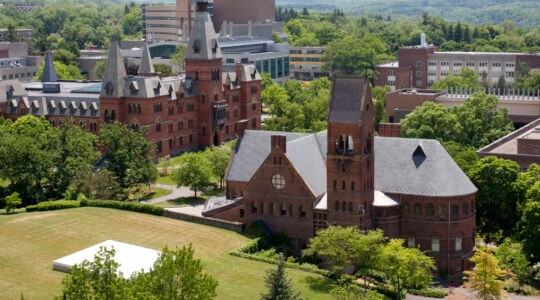JERUSALEM (JTA) — Jerusalem Mayor Nir Barkat rejected White House criticism of building housing in a Jewish neighborhood in eastern Jerusalem.
“I say this firmly and clearly: Building in Jerusalem is not poisonous and harmful – rather, it is essential, important and will continue with full force,” Barkat said Thursday in a statement. “I will not freeze construction for anyone in Israel’s capital. Discrimination based on religion, race or gender is illegal in the United States and in any other civilized country.”
A day earlier, White House spokesman Josh Earnest said that a plan that was granted final approval in December 2012 for the construction of 2,610 housing units in the Givat Hamatos neighborhood would “poison the atmosphere” and distance Israel from “even its closest allies.”
Barkat said the apartments there “will enable more young people from all sectors and religions to live in Jerusalem and build their future here, thereby strengthening the capital of Israel. We will not apologize for that. ”
The plan was published last week, allowing for tenders to be issued and construction to start. It was publicized Wednesday by Peace Now two hours before a scheduled meeting between Israeli Prime Minister Benjamin Netanyahu and President Obama.
Following the meeting, Netanyahu slammed Peace Now for its timing in releasing the news, calling it “irresponsible” and saying the activist NGO had timed the statement to harm his talks with Obama.
Netanyahu also rejected the criticism, saying the White House should make sure it understands the situation properly “before deciding to take a position like that.”
Peace Now Executive Director Yariv Oppenheimer said, “Netanyahu has only himself to blame. He is responsible for authorizing building in sensitive areas. The prime minister should reserve for himself and his ministers his frustration over the destructive impact of his policies on Israel foreign relations.”

Help ensure Jewish news remains accessible to all. Your donation to the Jewish Telegraphic Agency powers the trusted journalism that has connected Jewish communities worldwide for more than 100 years. With your help, JTA can continue to deliver vital news and insights. Donate today.





